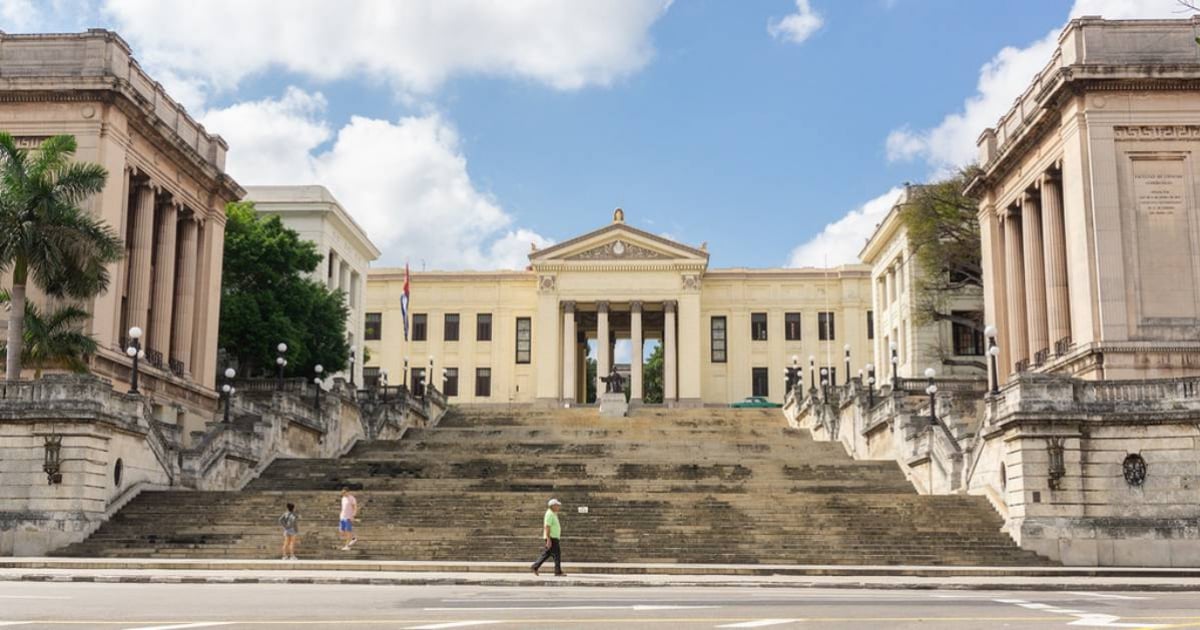Amidst a wave of student unrest that has led to an academic strike initiated by students at the University of Havana and spreading to various provinces, the Cuban government and the Communist Party of Cuba (PCC) have called for unity against what they describe as a new "destabilizing maneuver" instigated by "enemies of the system."
In an official statement, Roberto Morales Ojeda, the Secretary of Organization for the PCC, claimed that "numerous media manipulations and opportunistic distortions" are attempting to "sow chaos, incite violence, and disrupt the peace of our homeland." He warned that the "media war is not a game; it is a destabilization tool aimed not only at our political system but also at the real needs of our people," in a Facebook post where, as is customary for the Cuban regime, he attempted to delegitimize the student protest.
Background of the Student Strike
The call to unite comes in response to an indefinite university strike initiated by students from the Faculty of Mathematics and Computer Science, joined by other faculties such as Philosophy, History, Sociology, and Social Work, as well as the University of Las Villas. The protest was sparked by recent restrictions imposed by ETECSA, which limit internet access in local currency and prioritize foreign currency offers.
The leadership of the University Student Federation (FEU) and the Union of Young Communists (UJC) have also intensified their rhetoric against the demonstrators, as the regime typically does in crisis situations. In a statement, the FEU condemned the strike and accused independent media and "opinion puppets" of promoting hatred and division. However, following this announcement, dissatisfied students demanded the resignation of the president of the organization that is supposed to represent them.
Response and Growing Tensions
Although ETECSA attempted to quell the crisis with an additional package of 6 GB for 360 CUP and free access to over 40 educational sites, students consider the measure insufficient and demand equitable internet access for the entire population, not just university students.
The conflict has highlighted a generational and ideological divide within Cuba's educational system. While authorities persist with their external confrontation rhetoric, students are calling for horizontal dialogue, social justice, and participation without oversight.
Implications for Cuban Society
Analysts believe this episode signifies a turning point in the relationship between Cuban youth and the traditional power structures on the island. Academic José Raúl Gallego recently expressed hope that "the university can regain the prominent role it once held in Cuban history."
Meanwhile, the university strike continues to gain support and elevate the tone of a protest that, for the first time in decades, openly challenges the authority of the FEU and institutional control over academic life on the island.
Frequently Asked Questions about the Cuban University Strike
What sparked the university student strike in Cuba?
The strike was triggered by recent internet access restrictions imposed by ETECSA, which limit access in local currency and favor foreign currency offers.
How have Cuban authorities responded to the student strike?
Cuban authorities have called for unity against what they see as destabilizing maneuvers, while criticizing media manipulations and attempting to delegitimize the protest.
What are the students demanding?
Students are demanding equitable internet access for the entire population, not just for university students.
